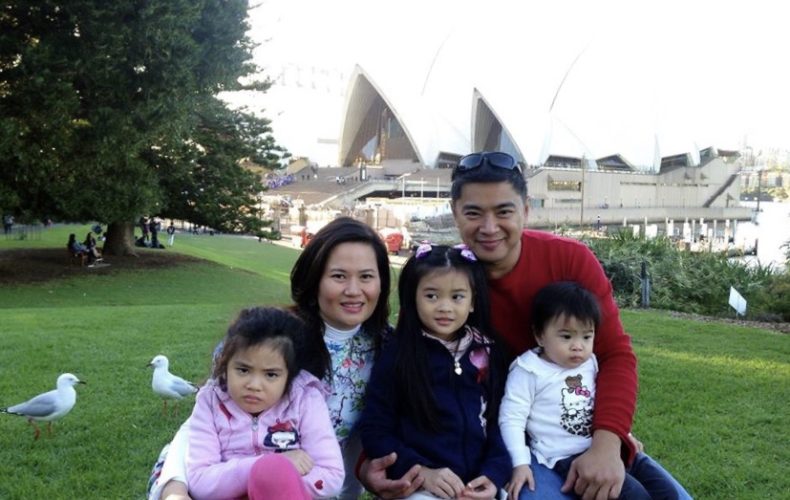“God’s grace goes ahead of us, is with us, and will stay with us. God is and will always be in charge.” In this article, Bishop Juray Mora and his wife, Deah, share the reality of God’s grace in one of history’s most difficult years.
It is a fact that 2020 is unlike any other year. What is your most important realization this year?
Bishop Juray: For me, the truth of God’s character, grace, faithfulness, and even His promises are all discovered in a time of trials and testing. When you are in the middle of challenging situations, you discover that His words are true. During this chaotic and uncertain time, we all went back to seeking our peace in God. When this was just starting, the numbers all looked bad. It seemed like everything was just getting worse, and everywhere you look, people were fearful. It was at this time that we learned to go back to God to seek His presence and find our hope in Him.
Deah: There are actually so many realizations this year. I think God removed all the unnecessary things that we considered necessary. This year we went back to the basics and realized that the beauty of His promise is found in the simplicity of life. God is our fortress and His word is our foundation.
What are you most thankful for in 2020? How did your family cope with all the challenges and changes you experienced this year? How did all these change you as a person and as a family?
Bishop Juray: I’m thankful for my time with my family. When our kids were young, we lived in the province and we did most things together. Life was simpler in the province. When we moved to Manila and as the kids grew older, their schedule started dominating our schedule. But because of this pandemic, we went back to doing things together as a family. We would have our prayer and devotional time together. We got to finish our conversations because no one was in a hurry to go anywhere else. This season really brought the importance of relationships to surface.
Deah: There was a period of adjustment. We have six children, and five of them still live with us at home. Being a big family confined in a limited space, it may sometimes feel like your personal space was invaded. Needless to say, quarrels erupted every now and then. This season exposed what God wanted to deal with in each of our hearts. It forced us to deal with them and run to God. He used this to draw us closer to Him. Because time was redirected to family, our relationships with one another also grew. My kids learned to adjust, tolerate, and be gracious with each other. They also expressed how thankful they were for our devotional time, which we get to do more regularly now. Even my son, who got married in January, also joins us online. It was fun to see the kids play online games, learn new skills, and do several things together. God really maximized this season and each of us experienced Him in a new and greater way.
We started 2020 with a declaration that we will see God’s amazing grace. Looking back, what new thing did you learn about God’s amazing grace? What is something new you learned or experienced about who God is?
Bishop Juray: We saw how God’s grace had gone ahead of us. From the start of the year, my family experienced challenges one after the other. A day before the lockdown, God’s provision poured in. It was completely unexpected. My son, who just got married, left the country where they had their honeymoon a day before lockdown was declared. In the midst of this pandemic, we experienced the grace of God. His grace goes ahead of us, is with us, and will stay with us. The challenge is really on our end. Are we going to believe Him and His promises? My wife and I agreed that we will choose to be in faith and build our faith. We went back to God’s word and spent time in prayer all the more. I also told my family that we need to push back against fear. In these very uncertain times, we see fear all around us. As people of God we know that fear, other than fear of Him, will not produce anything good. We have to choose to trust God for what’s ahead and be in faith.
Deah: God showed me that He has been the same. He was just as in charge before the pandemic as He is now. God used this year to put me in situations where I can trust Him more. It’s just like being a bummer lamb before its shepherd. Bummer lambs are rejected lambs. Their mothers, for whatever reason, did not take care of them. The shepherds feed them through bottles. They form a special bond with their shepherds. This year taught me to depend on God the way a bummer lamb would depend on a shepherd in order to stay alive.
Some say that things will never really go back to how they were before. How can we continue to declare God’s unchanging love and amazing grace in a world that has just gone through major changes?
Bishop Juray: Change constantly happens in our lives. We can live through the changes as long as our values stay the same. These values will dictate what we will treasure and what we will, in turn, protect. No matter what happens around us, if we can keep strong relationships with our friends, family, and God, we would be able to adjust by the grace of God. That is something we can keep on declaring. We can speak about God’s supernatural power. As people of God, I hope that we would continue to declare the miracles we experienced this year, that this would be part of our “new normal.”
Deah: We declare what the word of God says, not what society says. We know that the word never changes, but the power of the word causes change. As believers, we can and should continue to declare that. In any situation, God’s word is the only true source of power and hope.
Bishop Juray serves in the Bishops Council of Victory. He has been married to Deah for almost 30 years. They are blessed with six children who are pursuing God’s plans and purposes for their lives.
Beyond the Series is a set of interviews on topics related to our sermon series.


























